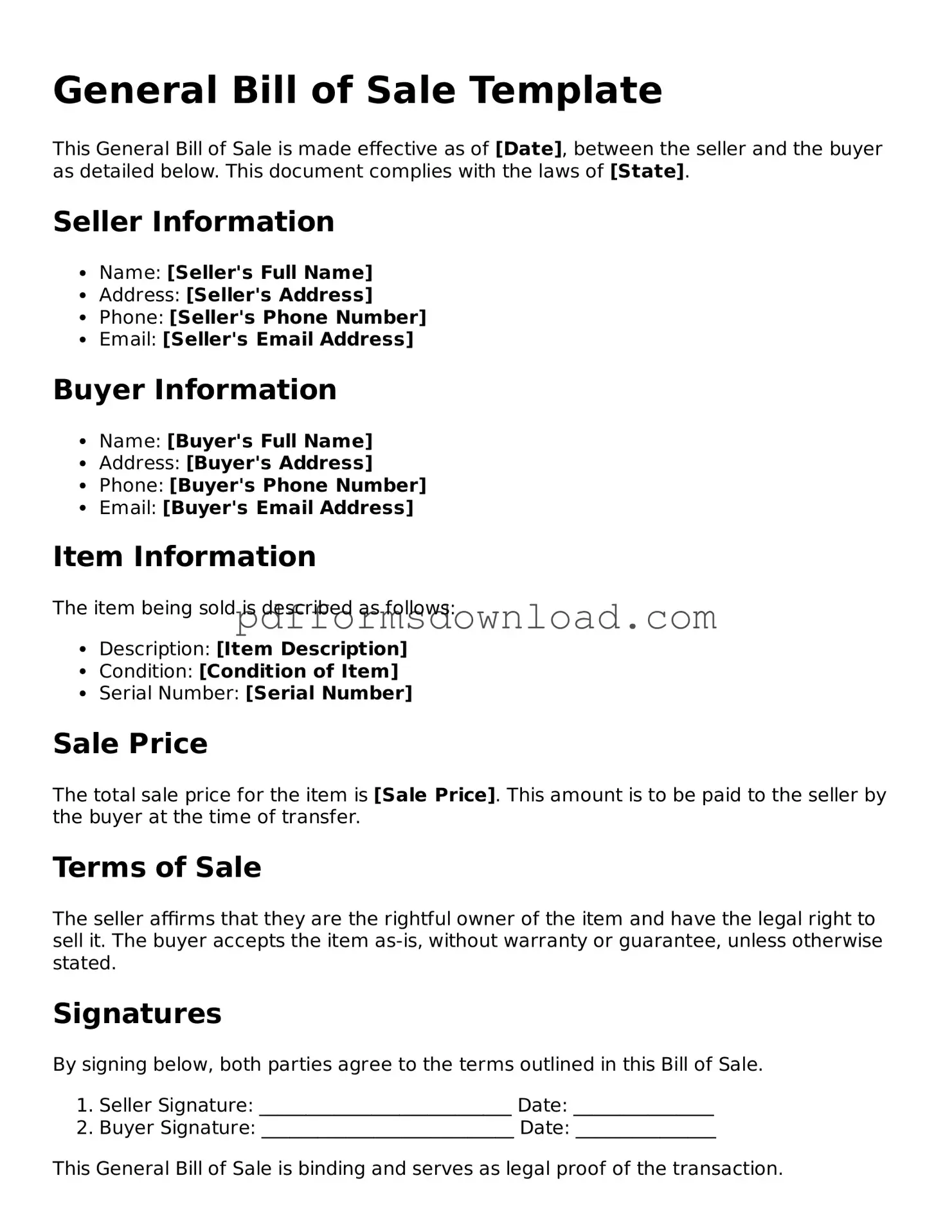What is a General Bill of Sale?
A General Bill of Sale is a legal document that records the transfer of ownership of personal property from one party to another. It serves as proof of the transaction and outlines essential details such as the description of the item, the sale price, and the date of the sale. This form can be used for various items, including vehicles, furniture, and equipment.
Why do I need a General Bill of Sale?
Having a General Bill of Sale is important for several reasons. It provides a clear record of the transaction, which can protect both the buyer and the seller. In case of disputes, this document can serve as evidence of ownership and the terms of the sale. Additionally, some states require a bill of sale for registering vehicles or transferring titles.
What information should be included in a General Bill of Sale?
A comprehensive General Bill of Sale should include the following information: the names and addresses of both the buyer and seller, a detailed description of the item being sold (including any serial numbers or identifying features), the sale price, the date of the transaction, and any warranties or conditions related to the sale. Both parties should sign the document to validate it.
Is a General Bill of Sale required by law?
While a General Bill of Sale is not universally required by law, it is highly recommended. Some states may mandate it for specific transactions, particularly when dealing with vehicles or certain high-value items. Always check local regulations to ensure compliance with any legal requirements.
Can I create my own General Bill of Sale?
Yes, you can create your own General Bill of Sale. There are many templates available online that you can customize to fit your needs. However, ensure that all necessary information is included and that it complies with your state’s laws. Alternatively, you may choose to consult a legal professional for assistance in drafting the document.
Do I need to have the General Bill of Sale notarized?
Notarization is not typically required for a General Bill of Sale, but it can add an extra layer of protection. Having the document notarized can help verify the identities of the parties involved and the authenticity of their signatures. This can be particularly useful in case of disputes or if you need to present the document in court.
What should I do with the General Bill of Sale after the transaction?
After the transaction is complete, both the buyer and seller should keep a copy of the General Bill of Sale for their records. This document can be important for future reference, such as when registering the item or if any legal issues arise. Store it in a safe place where it can be easily accessed if needed.
Can I use a General Bill of Sale for a vehicle?
Yes, a General Bill of Sale can be used for a vehicle. In fact, it is often required when transferring ownership of a car, motorcycle, or boat. Make sure to include specific details about the vehicle, such as the make, model, year, and Vehicle Identification Number (VIN), to ensure clarity in the transaction.
What if I lose my General Bill of Sale?
If you lose your General Bill of Sale, it can be challenging, especially if you need it for legal purposes. If possible, try to obtain a copy from the other party involved in the transaction. If that isn’t feasible, you may need to create a new document that outlines the details of the original sale and have both parties sign it again. Always keep copies of important documents in a secure location to prevent loss in the future.

